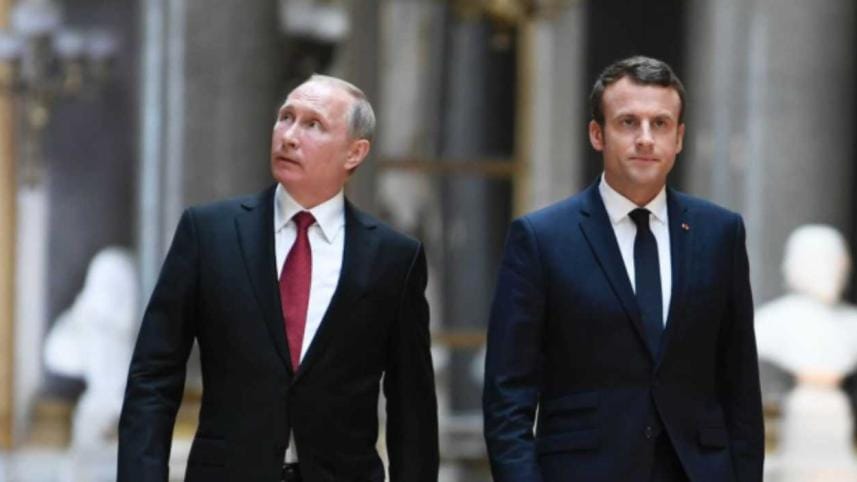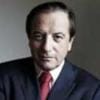The Macron Doctrine?

French President Emmanuel Macron invited Russian President Vladimir Putin to Paris as his first foreign guest, while US President Donald Trump will attend this year's Bastille Day celebrations. By reaching out to two world leaders who made no secret of their hope that he would never make it to the Élysée Palace, Macron has set the stage for a new and ambitious French foreign policy.
The message Macron is sending is that he will remain open to new opportunities for compromise—talking to anyone who is willing, but without glossing over disagreements. His foreign policy seeks to restore France's central position on the world stage, while remaining firmly committed to Europe.
Macron's foreign-policy effectiveness will depend on his ability to bring about a domestic economic turnaround—a lesson learned from Macron's predecessor François Hollande. Beyond a military intervention against Islamist militants in Mali, Hollande achieved little on the international stage, precisely because he lacked credibility at home, owing to France's economic weakness.
It is too early to tell whether Macron will succeed where Hollande failed. But it is already clear that Macron possesses some valuable skills and attributes that his predecessor lacked: undeniable charisma, an ability to connect with foreign leaders (thanks partly to his fluent English), a solid grasp of global issues, and a drive to implement economic reform.
Macron will also benefit from external factors. For starters, the economic situation not only in France, but throughout Europe, has recently improved substantially. Moreover, France and Germany seem to be converging on a large number of global issues. Add to that the United Kingdom's self-isolation and Trump's erratic "America first" polices, and Macron is in a strong position to establish himself as a key champion of multilateralism.
Of course, even if Macron does guide an economic turnaround, France will have neither the means nor the ambition to supplant the US on the world stage. But Macron does want France to exercise more influence over the international system—an ambition that is underscored by the way he addresses Putin and Trump.
Just a couple of weeks after his election, Macron slammed Russian state-owned media for employing "lying propaganda" to smear him during the campaign—while standing right next to Putin himself. No French leader since Charles de Gaulle would have dared to stand up to Russia in such a public way. From Macron's perspective, however, the disagreements that will shape the bilateral relationship had to be laid out, and a clear power dynamic established, before dialogue could occur.
The major test of the Russia-France relationship lies in Syria—an issue that, so far, Macron has handled skillfully. He intentionally set aside the question of whether Syrian President Bashar al-Assad would remain in power (as Putin wants) or be deposed (as the US and others desire), but also made it clear that France would intervene militarily if Assad were to use chemical weapons again. It is not yet clear whether Macron's approach will succeed; but France has reestablished itself, at least for now, as a player in Syria.
As for Trump, Macron's disagreement with him mostly concerns multilateral issues. France and Europe place much stock in multilateralism, which supports burden sharing. The Trump administration's tendency toward trade protectionism—not to mention financial deregulation—is therefore a source of serious concern.
But it is Trump's commitment to withdraw from the Paris climate agreement that is most problematic to Macron, who plans to work with German Chancellor Angela Merkel to bring about a US reversal. If this effort succeeds, Macron will have established France as an effective advocate and practitioner of multilateralism.
Macron has another objective with regard to Trump: to prevent disagreements from undermining their ability to pursue shared interests, especially in the fight against terrorism. In Syria, for example, the French and US positions are rather closely aligned, and Trump has already shown more willingness than his predecessor, Barack Obama, to enforce a "red line" on the use of chemical weapons. But Trump's Syria policy remains confused, with few clear lines having really been drawn and significant discrepancies between the claims of Trump and his own cabinet.
Of course, Trump's threats of disengagement from NATO also worry France. But France has always sought to maintain a capacity for strategic autonomy, and Macron hopes that the weakening of the US strategic guarantee will convince Europeans, who have long lagged on the establishment of a stronger common defence posture, to do the same.
Considerable economic, strategic, and cultural obstacles to the emergence of a European defence posture no doubt remain, including among those within some French industrial circles who oppose open tenders for defence contracts. But there are signs of progress. Most notably, the European Commission has for the first time decided to offer European funding for key military programmes, especially in research and development.
It will take time to marshal not just the money, but also (and more challenging) the political will. But rising uncertainty over America's reliability—together with the departure of the UK, which has long opposed European defence, from the European Union—has already spurred Germany to acknowledge the need for progress. And, of course, progress for Europe is progress for France, as Europe acts as a multiplier of its national power.
There is not yet a "Macron Doctrine." But Macron's foreign policy goals are coming into focus: increase France's credibility by reversing its economic decline; bolster the Franco-German axis in Europe; strengthen Europe's role in the world; and engage with everyone. It is a realist approach—but certainly not a cynical one.
The writer is Professor of International Relations at L'Institut d'études politiques de Paris (Sciences Po).
Copyright: Project Syndicate, 2017.
www.project-syndicate.org
(Exclusive to The Daily Star)


 For all latest news, follow The Daily Star's Google News channel.
For all latest news, follow The Daily Star's Google News channel.
Comments